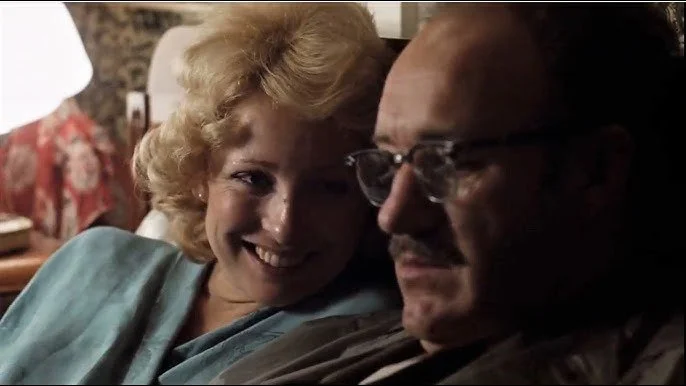#138: The Conversation
Release Date: April 7th, 1974
Format: DVD
Written by: Francis Ford Coppola
Directed by: Francis Ford Coppola
4 Stars
Gene Hackman was found dead today, at the age of 95. In my mind’s eye is an actor who played large, gruff, intelligent men who are often capable of malice.
But he was so much more than that. He was a wonderfully colorful actor who could be funny (Bonnie and Clyde, Young Frankenstein, The Royal Tenenbaums), heartwarming (Hoosiers), and in the case of Francis Ford Coppola’s The Conversation, tender and introverted and tortured.
Hackman plays Harry Caul, a surveillance expert who becomes wracked with guilt when he believes he may have endangered a couple that he surveilled for a wealthy, possibly deadly, client.
It’s a great performance in a great movie.
Harry Caul quietly suffers professionally and personally. He says that he has no interest in the content of the tapes he secretly records; he only wants “a nice fat recording.” Does he really believe this? Or is he afraid of the intimacy that he hears on these tapes?
Based on a scene early in the film between Harry and his girlfriend (played by the lovely Teri Garr, who also passed away recently), it may be the latter. Harry seemingly keeps her in an apartment that he pays for and visits when he wants, but that’s about the extent of the relationship. But she would love to know more about him: Does he live alone? What does he do for work? Does he have any secrets?
Harry, though, is a deeply private man. He will listen, but he would prefer not to talk. As he’s leaving the apartment, his girlfriend tells him, “I was happy you came tonight, Harry. My toes were dancing under the covers. But I don't think I'm going to wait for you anymore.”
Harry pauses with the front door ajar, makes an almost imperceptible gesture that he might stay and share in this relationship, but then he opens the door back up and leaves forever, his head and shoulders slumped in resignation. It’s a real heartbreaker of a scene, and seeing two of my favorite actors, recently deceased, so young and good here, made it especially poignant.
In addition to the performances, The Conversation’s photography is beautiful, and the piano score from composer David Shire is haunting and paranoid. I was also especially aware during this most recent viewing of Coppola’s ability to subtly shift tone. He’s so good here. As Harry Caul battles his personal demons, The Conversation deftly navigates feelings of sadness, isolation, regret, fear, and romantic longing.
It’s a popular contrarian choice amongst film nerds as Coppola’s best movie. It’s tough to deny the monumental scope and brilliance of The Godfather, The Godfather Part II, and Apocalypse Now, but they might be right.
